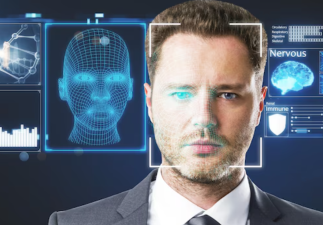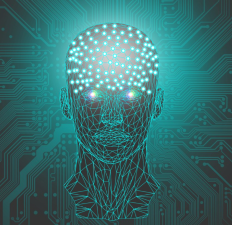The field of artificial intelligence has developed rapidly in recent years, which has attracted widespread attention. At the same time, the boundary between artificial intelligence and human intelligence has gradually become blurred and sometimes difficult to distinguish. However, we must be clear that the root of artificial intelligence is still the creation of human intelligence.
With the rapid development of computing technology, we are entering a new era of deep integration of digital and physical, in which the intelligence of external devices, breakthroughs in brain-computer interfaces, the widespread application of artificial intelligence and robots, and innovations in the biomedical field have jointly drawn a blueprint for the gradual disappearance of the boundary between humans and robots.

The birth and development of artificial intelligence
The fact that the birth and development of artificial intelligence are both derived from human creativity cannot be ignored. Human intelligence, that is, the wisdom and ability displayed by humans in the process of understanding and transforming the world, comes from their unique thinking mode. As "man is a thinking animal", thinking is the core of human intelligence. Through thinking, humans can form complex and diverse intentions, drive their own behavior, and show conscious initiative. This conscious initiative is influenced by multiple factors such as personal experience, social status, motivation, interest, emotion, and knowledge and cultural background, making everyone's response unique. In addition, humans have eight unique intelligences, including language, mathematical logic, spatial imagination, music creation, physical movement, interpersonal relationship management, self-cognition, and natural cognitive ability, which are all important components of human intelligence.
Comprehensive changes in computing direction
Driven by the wave of digitalization, almost all fields are undergoing profound changes in computing. External devices such as mobile phones and computers are no longer just tools for communication or entertainment, they have become powerful platforms for us to obtain, process, and analyze information.
Through continuously upgraded intelligent algorithms, these devices can predict our needs, optimize our decisions, and even replace us for complex calculations in some cases. This change not only greatly expands human cognitive ability, but also heralds a fundamental change in the way information is obtained in the future - from passive to active creation and intelligent screening.
At the same time, it is not just the progress of classical computing, but also the development trend of quantum computing and biological computers.
Brain-computer interface: directly expanding brain capabilities
The development of brain-computer interface (BCI) technology has pushed the integration of humans and machines to a new level. By directly connecting the brain to external devices, people can control robotic arms and wheelchairs with their thoughts alone, and even achieve remote communication and learning. This technology not only provides unprecedented convenience for people with disabilities, but also opens the door to higher-dimensional cognition and control for ordinary people. In the future, with the advancement of neuroscience, we may be able to upload knowledge, experience, and even emotions directly through thinking, and realize the true "interconnection of thinking".
AI + Robots: Replacement and transcendence of physical strength
In the field of physical labor, the combination of artificial intelligence and robots is gradually replacing humans to complete heavy, dangerous or repetitive work. From automated production lines in the manufacturing industry to intelligent robots in the service industry, they not only improve production efficiency, but also reduce human errors and ensure personnel safety. More importantly, these robots can continue to learn and evolve, adapt to more complex and changing task environments, and show intelligence and flexibility beyond human physical strength. This trend prompts us to rethink the nature and value of human work and explore new models of human-machine collaboration.

Quantitative revolution in physiological medicine and neuroscience
In the field of biomedicine, with the application of technologies such as big data and machine learning, the human body is gradually being quantitatively analyzed. From gene editing to precision medicine, scientists can more accurately understand the human body mechanism, predict disease risks, and develop personalized treatment plans. At the same time, the progress of neuroscience is also revealing the mysteries of brain operation, providing the possibility of treating neurodegenerative diseases and improving cognitive ability. Breakthroughs in new materials such as nanotechnology have opened up new horizons for organ repair and replacement. For example, nanorobots can accurately deliver drugs to lesions, and artificial organs made of new materials can perfectly simulate the functions of natural organs.
The relationship between artificial intelligence and human intelligence is complex and subtle. They complement and restrict each other. With the continuous integration of people and technology, this relationship will become closer. It should be clear that artificial intelligence is only a product of human wisdom, similar to other tools. It can assist humans in completing tasks that require long-term learning and accumulation to be competent. However, human wisdom is better at inspiring inspiration, concretizing and instantiating logical thinking.
Although artificial intelligence has made remarkable achievements in many aspects, the difference in consciousness is still an insurmountable gap between it and human intelligence. This difference precisely reflects the essential difference between creation and being created. Therefore, although artificial intelligence performs well in some tasks, there is no need to worry that it will replace humans in the future.


